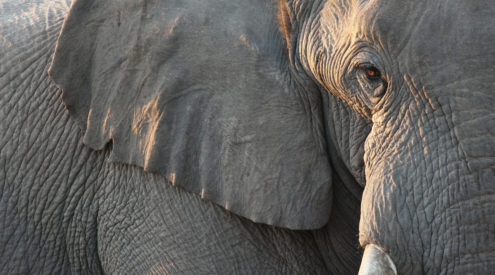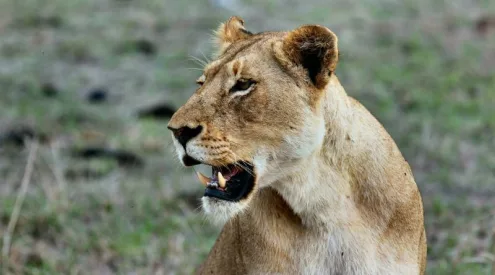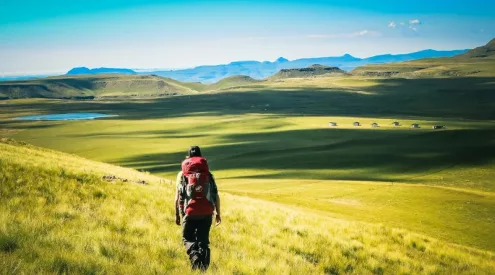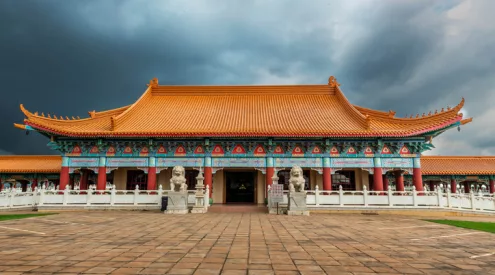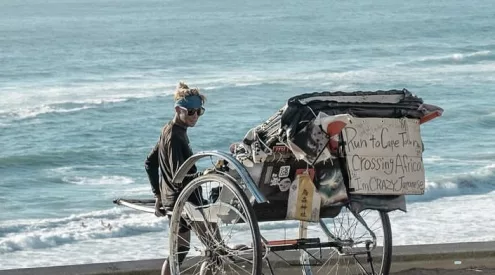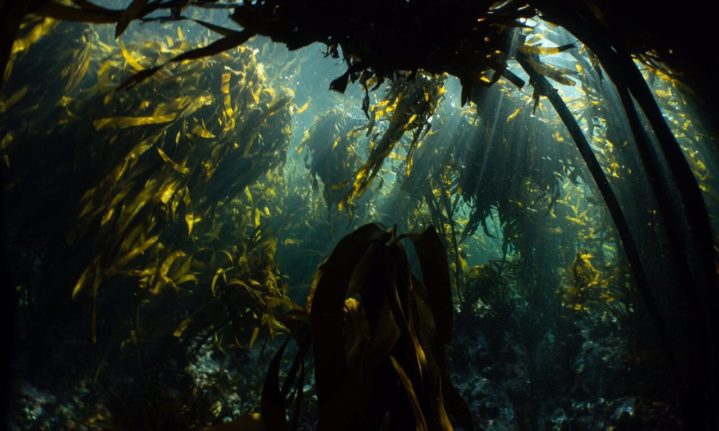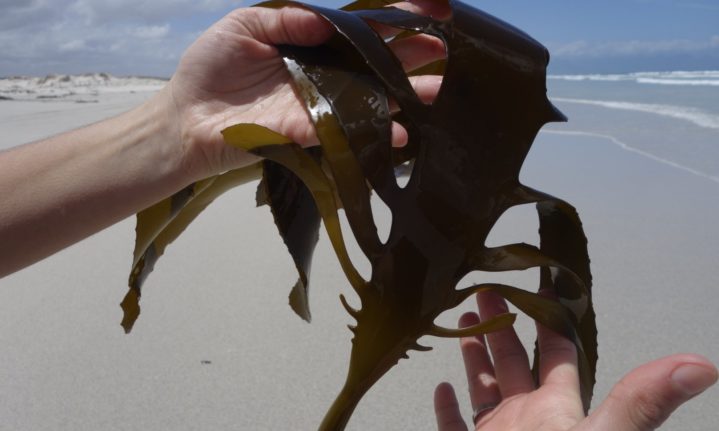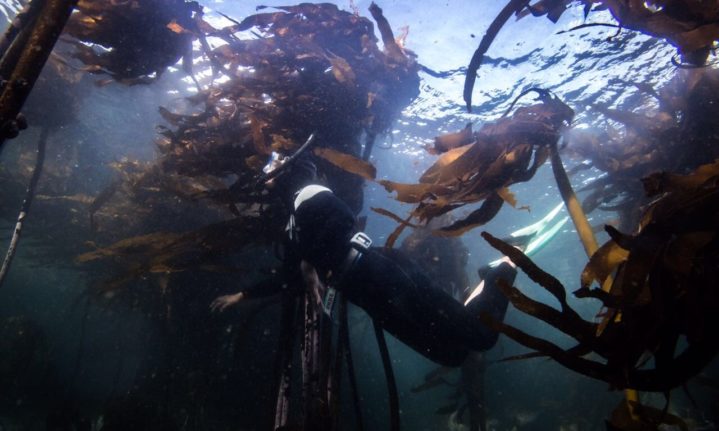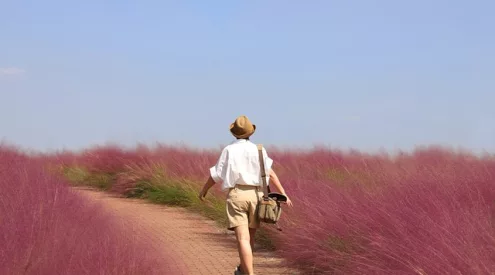The Kelp Forests near Cape Town have made it onto Bloomberg‘s list of ‘new’ Seven World Wonders. Ranking fifth on the list, this Cape Peninsula kelp forest is recognised as the prominent backdrop of the Academy Award-winning documentary My Octopus Teacher.
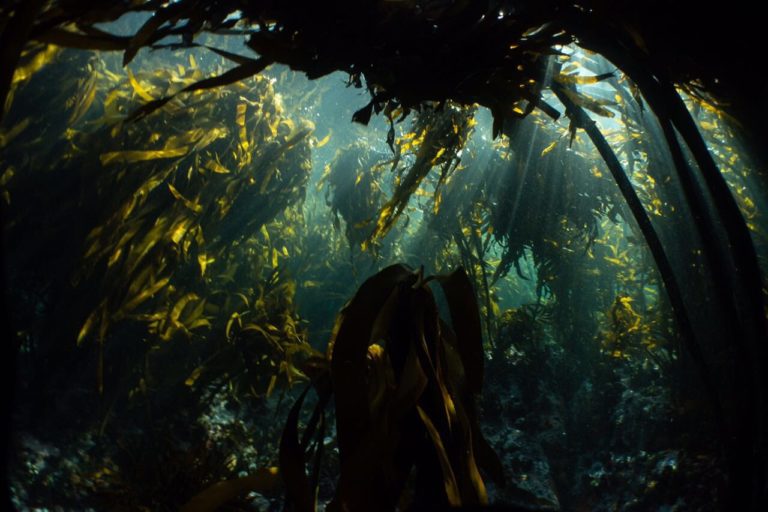
The Kelp Forest in Kalk Bay captured by @paulakahumbu on Twitter.
The False Bay side of Cape Town is home to the majestic kelp forest which offers out-of-this-world diving experiences and is home to millions of creatures.
The South African west coast is dominated by kelp forests as they form large beds in the southern Benguela region, with south-easterly winds that result in an upwelling of cool nutrient-rich waters that the kelp thrives in the most.
South Africa is one of the very few countries in the world where natural kelp forests are found on its coasts. The two most popular kelp found on South African coasts is Ecklonia maxima (also known as the Sea bamboo), and Laminaria pallida (also known as the Split-fan kelp).
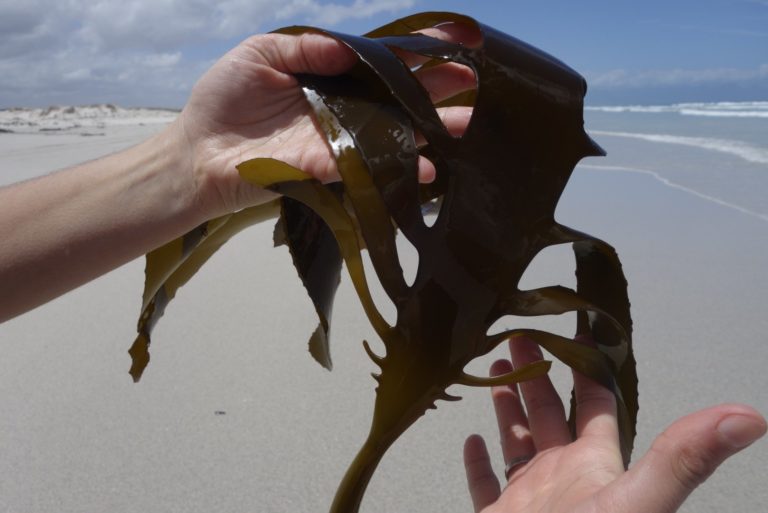
Ecklonia maxima photographed on a Cape Town beach by @BiologyonthGo on Twitter.
The Ecklonia maxima grow up to 12m tall on the west coast. This kelp has a hollow stipe and is filled with gas to help keep it afloat. This Sea bamboo has thick, straplike fronds that grow from a bulb near the surface. This kelp is the most common on the Namibian coasts.
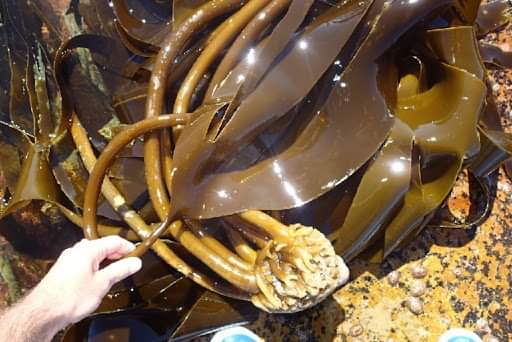
Laminaria pallida photographed on a Cape Town beach by @djombao on Twitter.
The Laminaria pallida prefer to stay in deep waters and grows up to 5m with a very stiff stipe. It is called Split-fan kelp because its stipe ends in a single large fan-shaped frond that can hang down to the floor and sweep away herbivores in the swell.
Kelp forests provide food for marine life and shelter through rough storms. With kelp forests, the ocean’s health is preserved through photosynthesis, and surrounding waters are purified by removing waste produced by the kelp inhabitants.
Species found in the kelp forest include octopuses, cuttlefish, starfish, and rock lobsters.
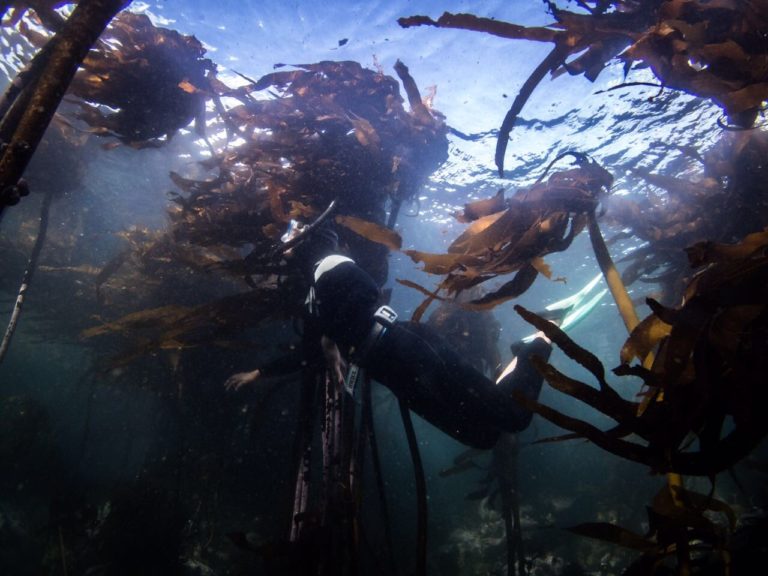
Kelp forest in Kalk Bay photographed by @paulakahumbu on Twitter.
Kelp forests play an immense role in reducing the effects of global warming because of their incredibly fast growth rate. Kelp has incredible bodies that export portions of biomass through gas-filled bladders out into the deep sea where carbon is then isolated.
Stay tuned for the next part in our series on Bloomberg’s new Seven World Wonders no 6: San Agustin, Colombia
Source: Cape Nature, Two Oceans,
PICTURES: Twitter
ALSO READ


